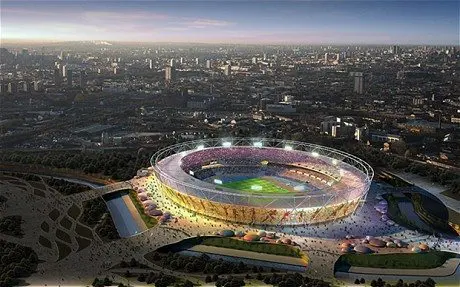The concept of Olympic Games as an event that has a large economic effect on host nations is a relatively recent one. When Los Angeles made a $225m surplus on the 1984 games the mission to stage profitable, spectacular and worthy games became increasingly focused for all host nations. But is has also become an arms race. At today’s prices the 1948 London Olympics cost only £4.4m, the 1984 LA games cost £776m but Beijing in 2008 cost £26b. So the games have become stupendously expensive to stage. If London costs £10b (a likely minimum cost); when will the return on investment come? One would hope for a 5 – 10 per cent deny return in year one from such an investment, but that looks like a very tall order.
Barcelona in 1992 perhaps benefited even more than Los Angeles as an Olympic host city in recent times. Unemployment sustainably fell by 60,000 in the Olympic year and city visitors doubled in the following decade. The rate of building also grew by 50 per cent more after the games than before. Does Barcelona compare to London? In one way yes, it spent about the same on the games in total as London but on the infrastructure around the city alone spent £8b was spent. But Barcelona was a fairly unknown city in 1992 and a ‘sleeper’ compared to London. It had more to gain and it embraced the opportunity. The long term effect on the city has been very profitable. Between 1990 and 2001 Barcelona moved from 11th to 6th in the EU city economic rankings.
Some of the Barcelona model will be seen in London but not to such a marked degree. The investment in wider infrastructure in London has been modest. Had a new airport been built on the Thames in time for the games we would be looking a lot stronger and smarter. The same applies to Crossrail which won’t be completed until 2018. As it is, London and its borders may feel a bit of a bottleneck this summer.
However, many deficiencies will be forgiven by visitors (though not two hour border queues) and London will be showcased to the world as never before by the new age of saturation media. The wider UK will also get positive global publicity for several weeks and the result over the next three years will be increased tourism which will help to give us that elusive ROI on the games. But do we have enough hotel beds and world class tourism offerings for the new wave of tourists that will come? This is a mixed picture.
So what of the outcome for the UK from this event? £10bn has been pumped into the UK economy from the initial investment. We can expect perhaps receipts of £0.5 -£1bn from added UK visitors and domestic spend directly related to the Olympics. Again, most of this will be in the already relatively wealthy South East. But most businesses will slow a lot in London during this period. More people will work from home, more will take time off and the pursuit of enterprise will atrophy, an effect that will carry on until mid September. I expect this effect to also be minus £ 0.5 bn on the economy. So the net benefit will be perhaps £½b. This assumes a tourism increase of 10 per cent during the period. Capacity to benefit from visitors is limited though more will be ‘shoe-horned’ in during the games.
Retail can expect as boost in the west end and Westfield shopping centres (Westfield Stratford saw a healthy jump in sales during the recent Cycling Championships in the Olympic Park). Pubs bars and restaurants will do very well, indeed, many are sold out already. Any business able to exploit short term gain from visitors will do well. Longer term the benefits are a lot less certain. Weymouth, home to the sailing events and ready for the games since last year, is seeing an upturn in visitors and a rise in property prices of up 10%. We may see the same effect in other host areas such as Wimbledon and Greenwich. So a halo effect will benefit many towns and districts.
The longer term gains are harder to see coming from new infrastructure; new sports facilities will help some localities but the legacy benefits will be very mixed and limited in my view.
Longer term I expect business and business investment in the UK to rise following the games. The UK’s unique EU strengths and commercial appeals will become more apparent to more people and investors. I expect London’s economy to increase by between 5-10 per cent over the next 5 years and some of this effect to rub off on the rest of the UK.
A hazard is that the Olympics, hard on the heels of Euro 2012 are a major distraction to a leisure hungry workforce and there is a danger that the UK’s productivity slips from June through to the end of August. Business leaders need to mindful of this and lead employees and teams to be aware that the slowdown is only a slowdown because everyone believes it to be so. So everyone must keep the energy and activity level up. It’s that simple. Just watch the highlights on TV later!


